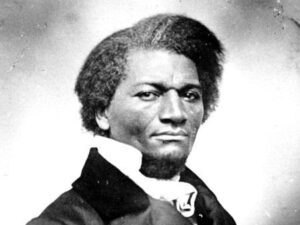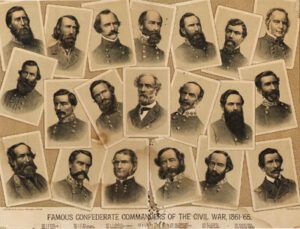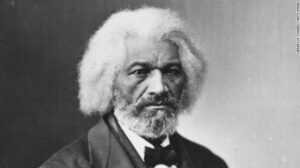11 Jul Ancestry search- July 11, 2020
Contents
- 1
- 2
- 3 How a Lincoln-Douglass debate led to a historic discovery. The last article in the newsletter shows you the type of detail that Dancestors’ exhaustive research can reveal!
- 4 What if your ancestor was a Confederate General?
- 5 What if your ancestor was a slaveholder, that held the notable Frederick Douglass as a slave? William Freeland was the 4th Great Uncle of a Dancestors client.
Two history professors’ text-message debate led to the discovery of a long-forgotten letter showing how Frederick Douglass felt about a statue of Abraham Lincoln and a slave that’s now under national scrutiny.
Read in The Wall Street Journal: https://apple.news/ARVwTIkiqRc2f7_ERmZ16LA
 What if your ancestor was a Confederate General?
What if your ancestor was a Confederate General?
Why the descendants of Confederate generals are happy to see their names go away.
As the Senate prepares to debate renaming military bases, we called living family members of the generals. Click on the link to see what they said.
https://apple.news/AG34urYyYTjGYMI8IDcfXiw
If you want to find out if your ancestors fought for a Confederate or Union General, reach out to Dancestors by going to the red website button below or calling me at 214-914-3598.
 What if your ancestor was a slaveholder, that held the notable Frederick Douglass as a slave?
What if your ancestor was a slaveholder, that held the notable Frederick Douglass as a slave?
William Freeland was the 4th Great Uncle of a Dancestors client.
An excerpt from the Notes on characters from “The Narrative of the Life of Frederick Douglass” Mr. William Freeland: After Frederick’s servitude to Mr. Covey, Douglass goes to work for Mr. Freeland, a fair and respectable slaveholder. Douglass considers Mr. Freeland, the best master he had before becoming his own master. Unlike many slaveholders, Mr. Freeland has no religious pretensions. While working for Mr. Freeland, Douglass tries an unsuccessful ESCAPE with two of Mr. Freeland’s SLAVES. Mr. Freeland’s mother blames Douglass for CORRUPTING THE MINDS OF HER SLAVES.”
An excerpt from the actual narrative: “During the scuffle, I managed, I know not how, to get my pass out, and, without being discovered, put it into the fire. We were all now tied; and just as we were to leave for Easton jail, Betsy Freeland, mother of William Freeland, came to the door with her hands full of biscuits, and divided them between Henry and John. She then delivered herself of a speech, to the following effect:–addressing herself to me, she said, “_YOU YELLOW DEVIL! IT was you that put it into the heads of Henry and John to RUN AWAY. But for you, you LONG-LEGGED MULATTO DEVIL! Henry nor John would never have thought of such a thing.” I made no reply, and I was immediately hurried off towards St. Michael’s.”
An excerpt from the actual narrative: “On the first of January, 1834, I left Mr. Covey, and went to live with Mr. William Freeland, who lived about three miles from St. Michael’s. I soon found Mr. Freeland, a very different man from Mr. Covey. Though not rich, he was what would be called an educated southern gentleman. Mr. Covey, as I have shown, was a WELL-TRAINED NEGRO-BREAKER AND SLAVE DRIVER The former (slaveholder though he was) seemed to possess some regard for honor, some reverence for justice, and some respect for humanity. The latter seemed insensible to all such sentiments. Mr. Freeland had many of the faults peculiar to slaveholders, such as being very passionate and fretful. Still, I must do him the justice to say, that he was exceedingly free from those degrading vices to which Mr. Covey was constantly addicted. The one was open and frank, and we always knew where to find him. The other was a most artful deceiver and could be understood only by such as were skillful enough to detect his cunningly-devised frauds.
Another advantage I gained in my new master was, he made no pretensions to, or profession of, religion, and this, in my opinion, was truly a great advantage. I assert without hesitation that THE RELIGION OF THE SOUTH is a mere covering for the most horrid crimes,–a JUSTIFIER of the most appalling BARBARITY,–a SANCTIFIER of the most hateful frauds,–and a dark shelter under, which the DARKEST, FOULEST, GROSSEST, and most infernal deeds of slaveholders find the strongest protection. We’re I to be again reduced to the chains of slavery, next to that enslavement, I should regard being the slave of a religious master the greatest calamity that could befall me. For of all slaveholders with whom I have ever met, religious slaveholders are the worst. I have ever found them the meanest and basest, the cruelest and cowardly, of all others. It was my unhappy lot not only to belong to a religious slaveholder but to live in a community of such followers.
Very near Mr. Freeland lived the Rev. Daniel Weeden, and in the same neighborhood, lived the Rev. Rigby Hopkins. These were members and ministers in the Reformed Methodist Church. Mr. Weeden owned, among others, a woman slave, whose name I have forgotten. This woman’s back, for weeks, was kept raw, made so by the LASH OF THIS CRUEL, religious wretch. He used to hire hands. His maxim was, Behave well or behave ill, it is the duty of a master occasionally to WHIP A SLAVE, to remind him of his master’s authority. Such was his theory and such his practice.”



 How a Lincoln-Douglass debate led to a historic discovery.
How a Lincoln-Douglass debate led to a historic discovery. What if your ancestor was a Confederate General?
What if your ancestor was a Confederate General? What if your ancestor was a slaveholder, that held the notable Frederick Douglass as a slave?
What if your ancestor was a slaveholder, that held the notable Frederick Douglass as a slave?